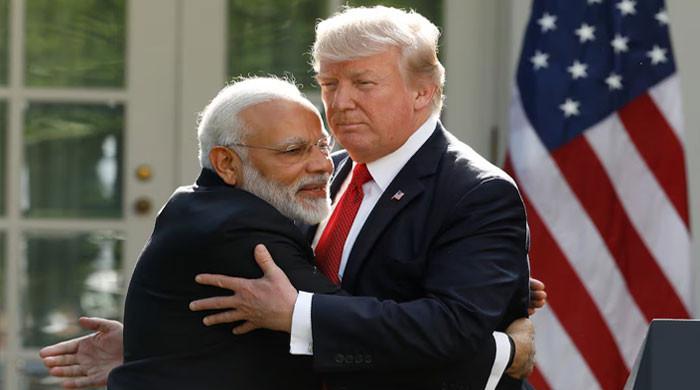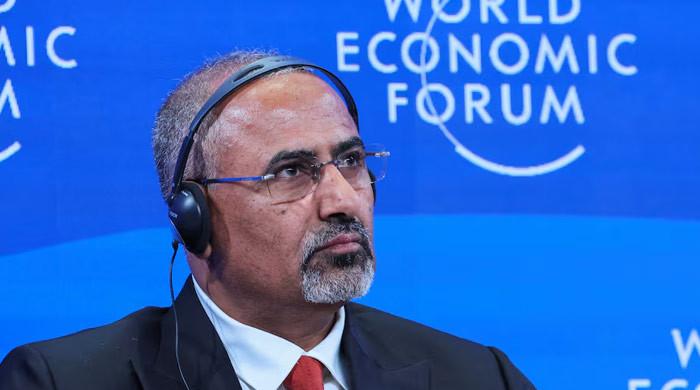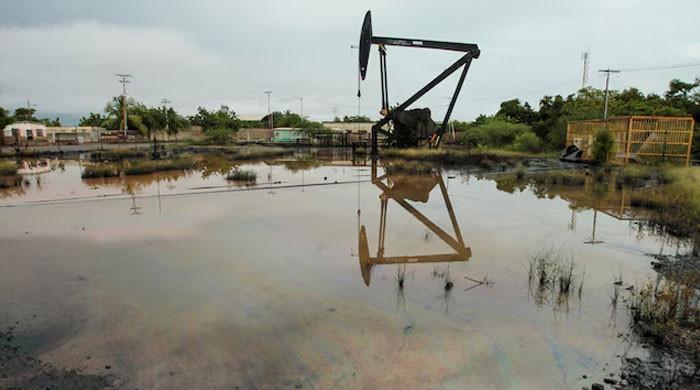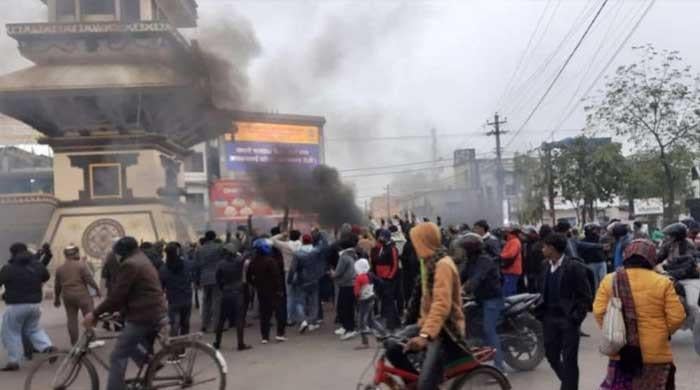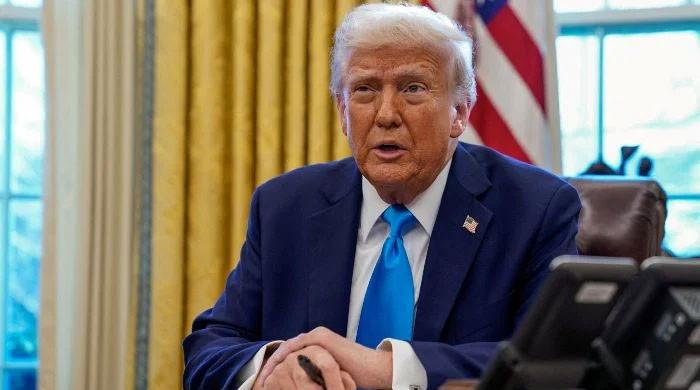In pictures: First 15 days of Trump
A look at the first 15 days of President Trump in the Oval Office
February 04, 2017
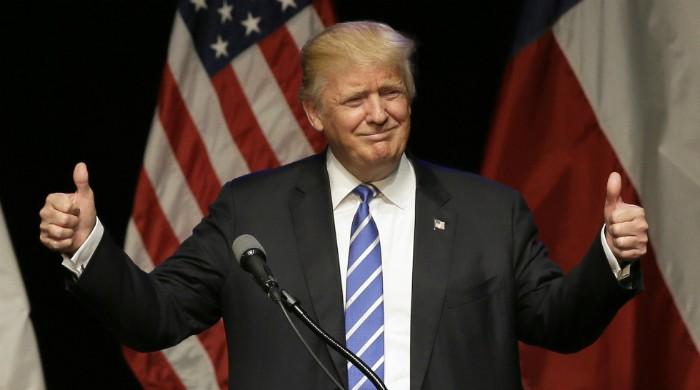
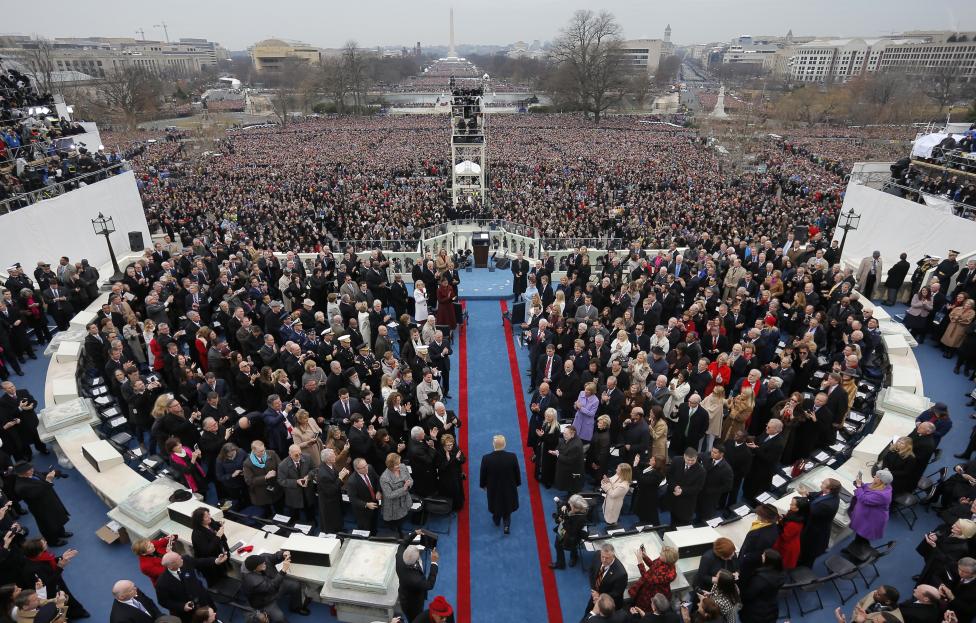
DAY 1 / JANUARY 20: President Trump took power as the 45th president of the United States and pledged to end what he called an "American carnage" of rusted factories and crime in an inaugural address that was a populist and nationalist rallying cry. Striking a defiant tone, Trump said American workers have been devastated by the outsourcing of jobs abroad. "From this day forward it's going to be only America First, the Republican told thousands of people gathered on the National Mall. Underscoring the deep divisions in the country, protests against Trump turned ugly in downtown Washington. Black-clad activists smashed store windows, blocked traffic and fought with police in riot gear who responded with tear gas and stun grenades. Police said more than 200 people were arrested.
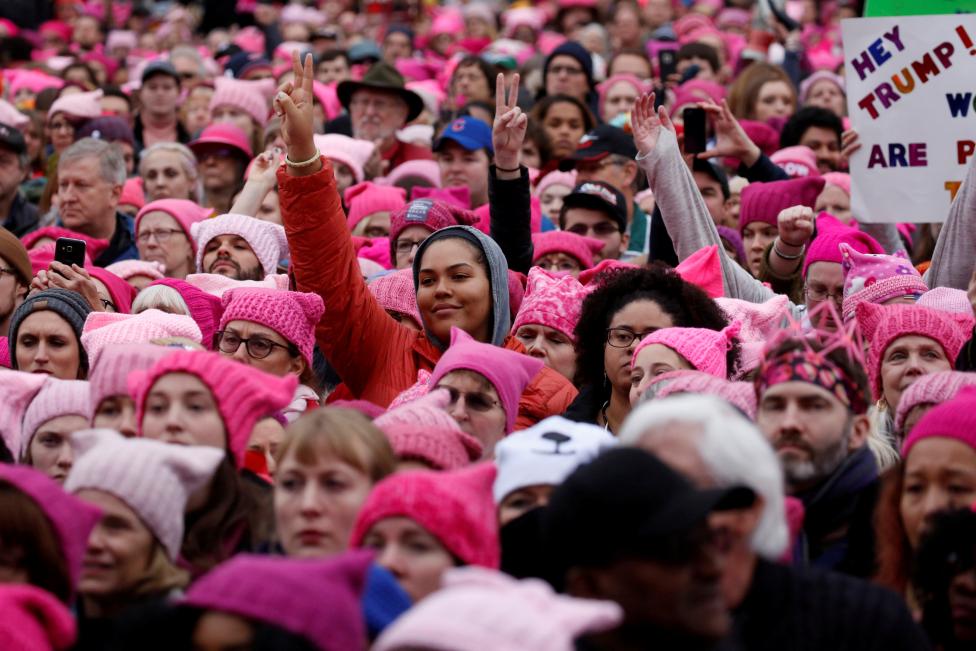
DAY 2 / JANUARY 21: Hundreds of thousands of women filled the streets of major American cities to lead an unprecedented wave of international protests against President Donald Trump, mocking and denouncing the new US leader one day after his inauguration. Women activists, outraged by Trump's campaign rhetoric and behavior they found to be especially misogynistic, spearheaded scores of marches in the United States and sympathy rallies around the world on Saturday. Organizers said they drew nearly 5 million protesters in all, far surpassing crowd expectations. The demonstrations also highlighted strong discontent over Trump's comments and policy positions toward a wide range of groups, including Mexican immigrants, Muslims, the disabled and environmentalists.
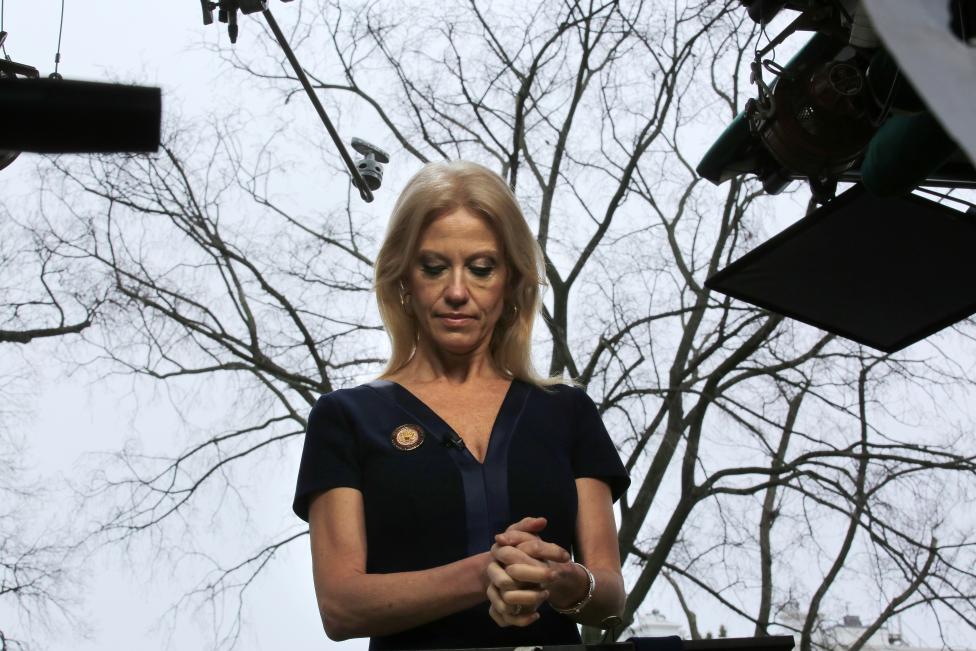
DAY 3 / JANUARY 22: Asked on NBC's "Meet the Press" why White House press secretary Sean Spicer was uttering provable falsehoods about the inauguration crowd size, White House senior adviser Kellyanne Conway fired back. "If we are going to keep referring to our press secretary in those types of terms I think that we are going to rethink our relationship here," she said. Conway responded to criticism that the new administration was focusing on crowds rather than on significant domestic and foreign policy issues by saying: "We feel compelled to go out and clear the air and put alternative facts out there." Spicer had accused some of the media of engaging in "deliberately false reporting." "This was the largest audience ever to witness an inauguration, period, both in person and around the globe," Spicer said. Aerial pictures of the crowds of Trump supporters on the Mall showed a much smaller turnout at midday than that in comparable photos from Obama's first inauguration in 2009. Washington's Metro subway system said 193,000 users had entered the system by 11 a.m. on Trump's Inauguration Day, compared with 513,000 at that time during Obama's 2009 inauguration.
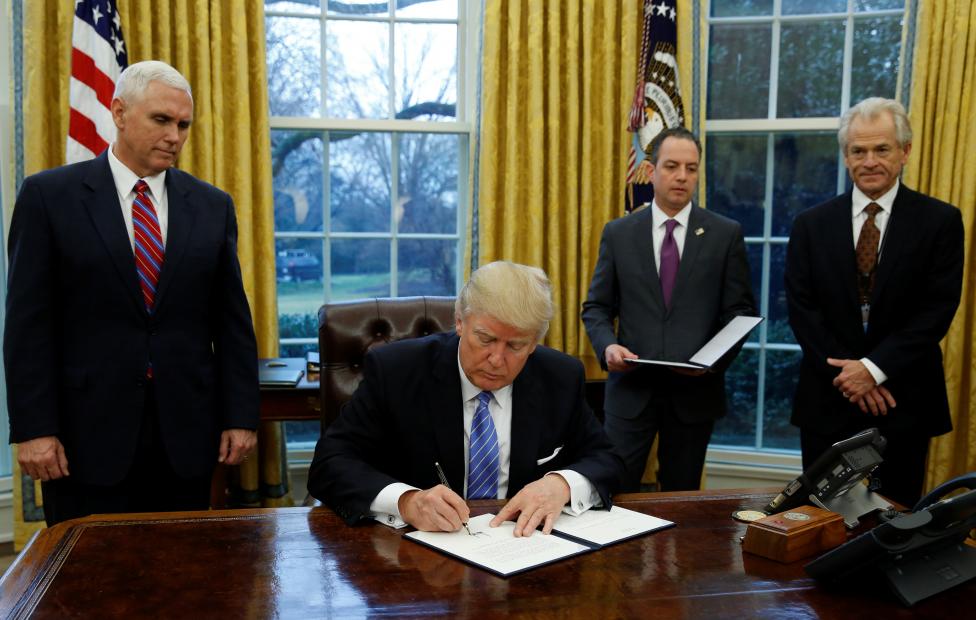
DAY 4 / JANUARY 23: President Trump signed an executive order for the reinstatement of the Mexico City Policy, a global gag rule that bans US-funded groups around the world from discussing abortion, a move that was widely expected but nonetheless dismayed women's rights advocates. The rule, which affects American non-governmental organisations working abroad, is one that incoming presidents have used to signal their positions on abortion rights. It was created under President Ronald Reagan in 1984. Former President Barack Obama had lifted the gag rule in 2009, when he took office.

DAY 5 / JANUARY 24: President Trump signed two executive orders to move forward with construction of the controversial Keystone XL and Dakota Access oil pipelines, rolling back key Obama administration environmental actions in favor of expanding energy infrastructure. While oil producers in Canada and North Dakota are expected to benefit from a quicker route for crude oil to US Gulf Coast refiners, a revival of the projects would mark a bitter defeat for Native American tribes and climate activists, who vowed to fight the decisions through legal action. Trump campaigned on promises to increase domestic energy production and before taking office indicated he supported completion of the Dakota pipeline and re-starting the $6.1 billion Keystone XL project, which was rejected in 2015 by then-President Barack Obama. Protesters had rallied for months against plans to route the $3.8 billion Dakota Access Pipeline beneath a lake near the Standing Rock Sioux reservation, saying it threatened water resources and sacred Native American sites.
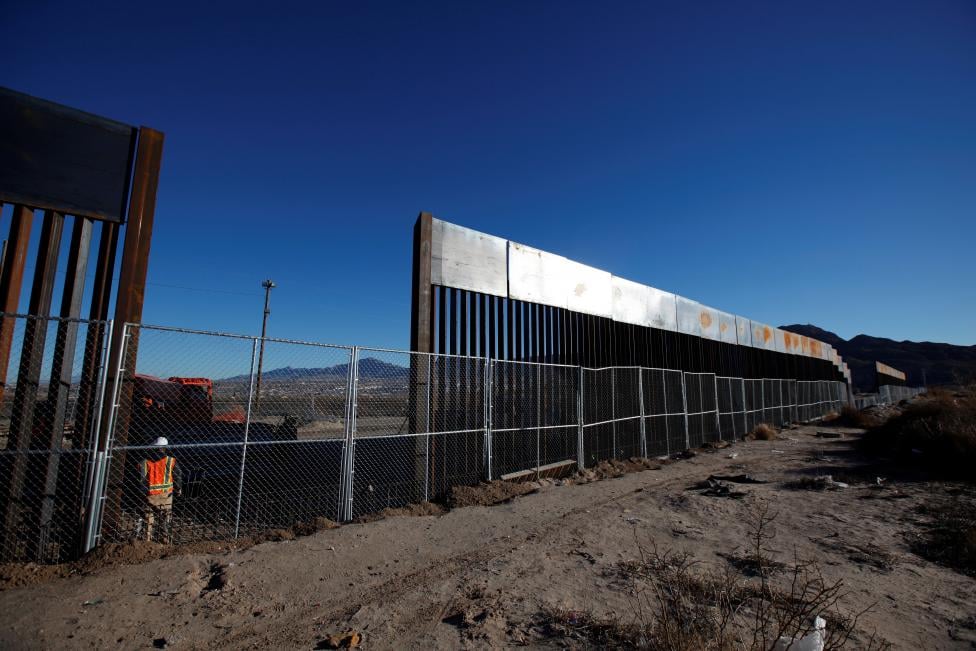
DAY 6 / JANUARY 25: President Trump signed directives to build a wall along the 2,000-mile US-Mexican border and strip federal funding from "sanctuary" cities that shield illegal immigrants, as he charged ahead with sweeping and divisive plans to transform how the United States deals with immigration and national security. "We are in the middle of a crisis on our southern border: The unprecedented surge of illegal migrants from Central American is harming both Mexico and the United States," Trump said in remarks at the Department of Homeland of Security after signing the directives. "And I believe the steps we will take starting right now will improve the safety in both of our countries," Trump said, adding: "A nation without borders is not a nation." His plans prompted an immediate outcry from immigrant advocates and others who said Trump was jeopardizing the rights and freedoms of millions of people while treating Mexico as an enemy, not an ally. A day later, Mexican President Enrique Pena Nieto scrapped plans to meet with Trump after Trump tweeted Mexico should cancel the meeting if it was not prepared to pay for his proposed border wall.

DAY 7 / JANUARY 26: Rogue Twitter feeds voicing employee concerns at more than a dozen US government agencies were launched in defiance of what they say are President Trump's attempts to muzzle federal climate change research and other science. Representing scientists at the Environmental Protection Agency, NASA and other bureaus, either directly or through friends and supporters, the accounts protest restrictions they view as censorship since Trump took office. Seizing on Trump's favorite mode of discourse, the feeds reflect concern that the new president, a climate change skeptic, is out to squelch federally backed research showing that emissions from fossil fuel combustion and other human activities are contributing to global warming. Reuters could not verify that all the accounts, which borrow the names and logos of their respective agencies, were being run by current federal employees of those agencies. The alternate National Park Service Twitter feed said it had passed control of its account to individuals outside the government to protect colleagues at the agency. An administrator of an associated Rogue NASA Facebook page told Reuters the alternative site was being used as a platform by agency scientists and others who support them.
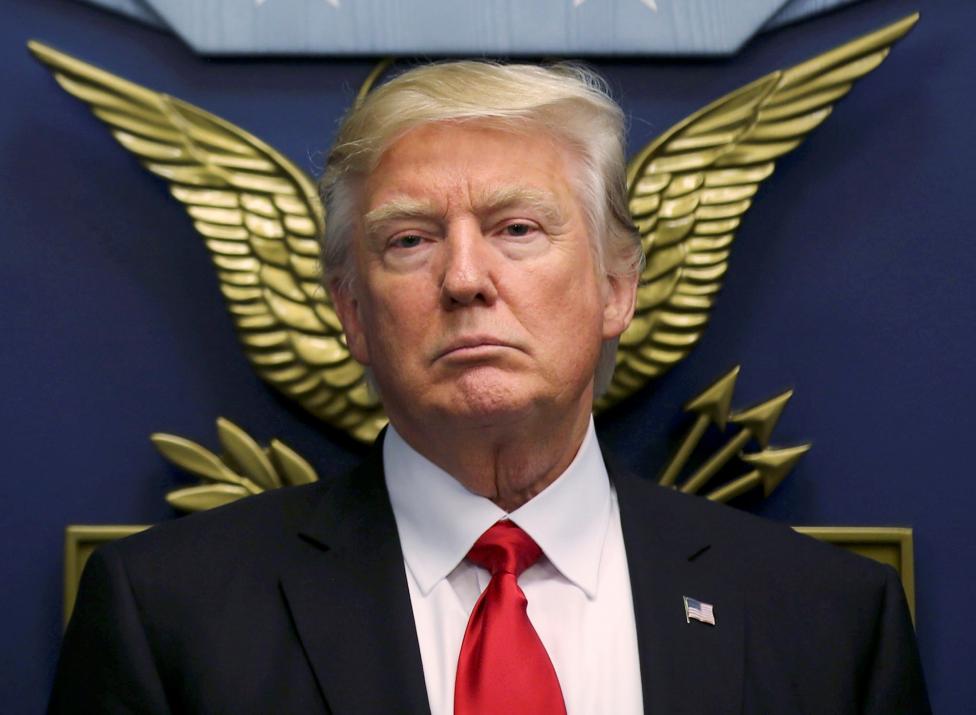
DAY 8 / JANUARY 27: Trump's order to restrict people from seven Muslim-majority countries from entering the United States sparked confusion and anger after immigrants and refugees were kept off flights and left stranded in airports. In his most sweeping decision since taking office a week ago, Trump put a four-month hold on allowing refugees into the United States and temporarily barred travelers from Iran, Iraq, Libya, Somalia, Sudan, Syria and Yemen. Capping a day of confusion and chaos and protests in several airports across the country, a federal judge in Brooklyn, New York, granted a temporary reprieve. The American Civil Liberties Union successfully argued for a temporary stay that allowed detained travelers to stay in the United States.
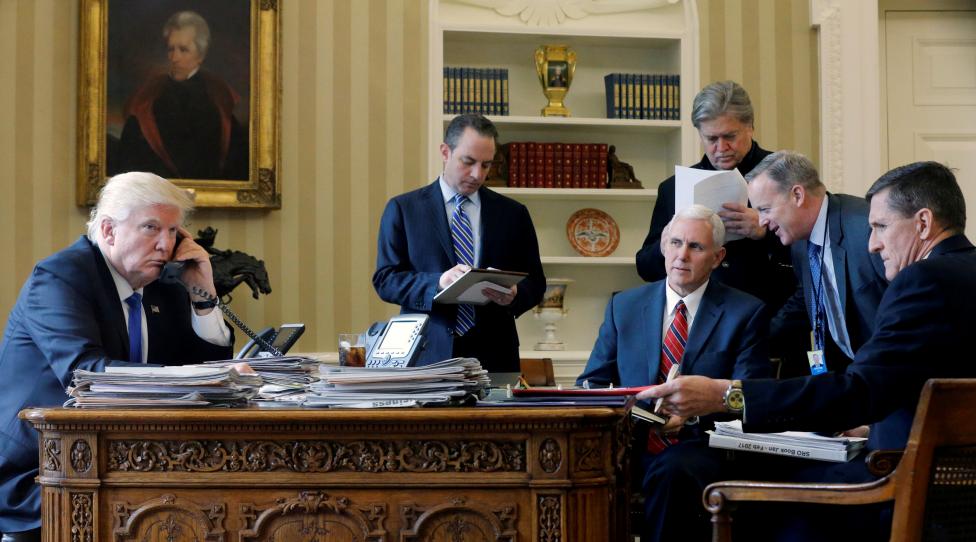
DAY 9 / JANUARY 28: Russian President Vladimir Putin and President Trump agreed to try to rebuild U.S.-Russia ties and to cooperate in Syria, the Kremlin said, after the two men spoke for the first time since Trump's inauguration. U.S.-Russia relations hit a post-Cold War low under the Barack Obama administration and Trump has made clear he wants a rapprochement with Moscow if he can get along with Putin, who says he is also keen to mend ties. Trump's stance on Russia has been under intense scrutiny from critics who say he was elected with help from Russian intelligence agencies, a charge he denies. His detractors have also accused him of being too eager to make an ally of Putin. For Putin, who faces possible re-election next year, an easing of US sanctions imposed on Moscow over its role in the Ukraine crisis would be a major coup. But the Kremlin made no mention of the subject being discussed, referring only to the two underlining the importance of restoring mutually-beneficial trade and economic ties.
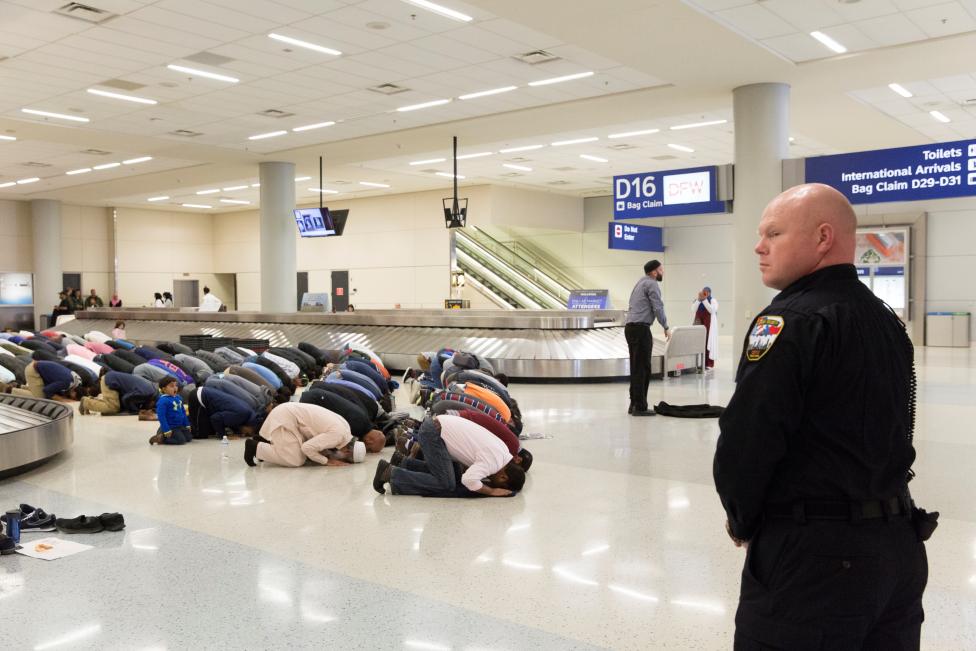
DAY 10 / JANUARY 29: President Trump fought back amid growing international criticism, outrage from civil rights activists and legal challenges over his abrupt order for a halt on arrivals of refugees and people from seven Muslim-majority countries. He and senior aides sought to defend the policy and play down the chaos sparked by the order. But confusion persisted over details of implementation, in particular for green card holders who are legal residents of the United States. Homeland Security Secretary John Kelly said that people from the seven countries with green cards would not be blocked from returning to the United States from overseas, as some had been after the directive. US judges in at least five states blocked federal authorities from enforcing President Trump's executive order.
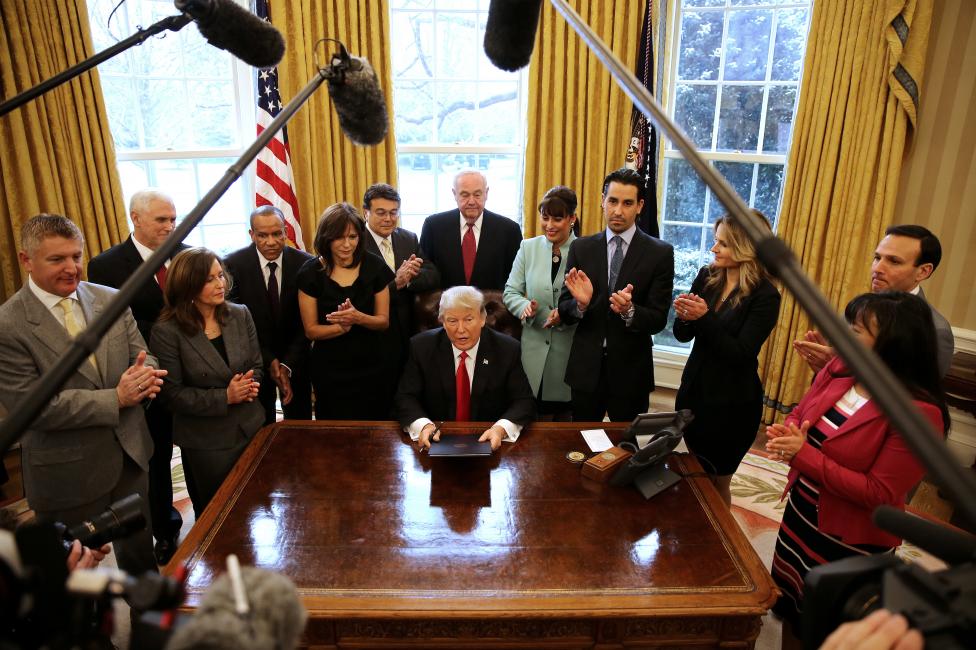
DAY 11 / JANUARY 30: President Trump signed an order that will seek to dramatically reduce federal regulations, but the policy will not apply to most of the financial reform rules introduced by the Obama administration. Trump's latest executive action will require that agencies cut two existing regulations for every new rule introduced and it will set an annual cap on the cost of new regulations.
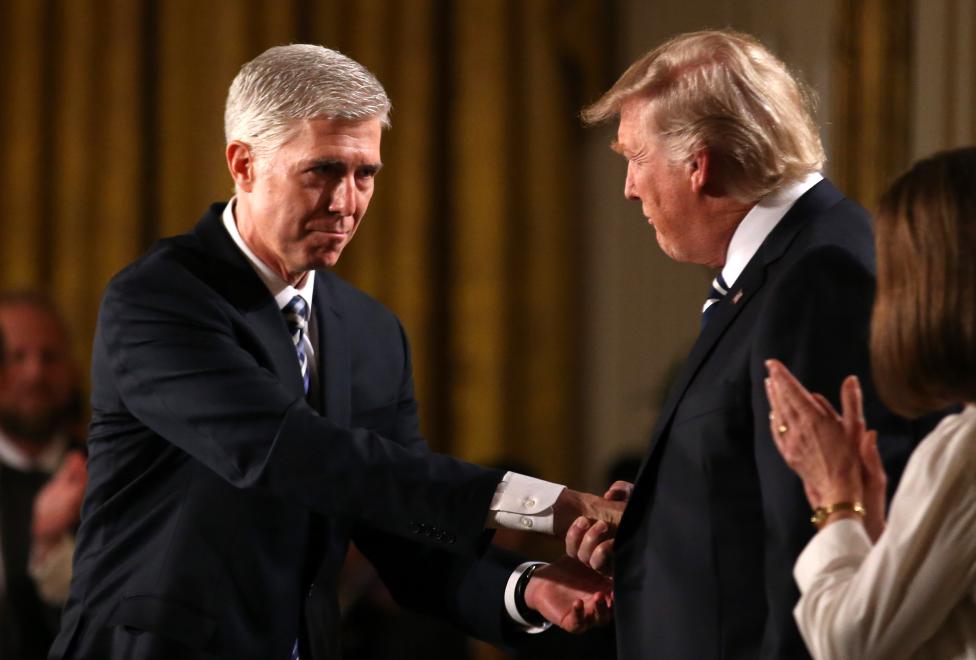
DAY 12 / JANUARY 31: President Trump nominates Neil Gorsuch for a lifetime job on the U.S. Supreme Court, picking the 49-year-old federal appeals court judge to restore the court's conservative majority and help shape rulings on divisive issues such as abortion, gun control, the death penalty and religious rights. Gorsuch is considered a conservative intellectual, known for backing religious rights, and is seen as very much in the mold of Scalia, a leading conservative voice on the court for decades.

DAY 13 / FEBRUARY 1: President Donald Trump met with Wayne LaPierre (R), executive vice president of the National Rifle Association and Paula White (L) from the New Christian Destiny Center regarding the Supreme Court nomination of Neil Gorsuch. Trump later urged Senate Republicans to "go nuclear" and impose a rule change to force a simple majority vote on confirmation if Democrats block his nominee. Trump's fellow Republicans control the Senate 52-48. Democrats signalled they would set up a procedural hurdle, known as a filibuster, requiring 60 votes, rather than a simple majority, to move towards confirmation of Gorsuch. The president urged McConnell to change long-standing Senate rules to eliminate the filibuster for Supreme Court nominees, a move dubbed the "nuclear option," if Democrats block Gorsuch. Trump's comments came as Democrats plotted strategy on how to deal with Gorsuch's nomination. They remain furious over McConnell's refusal last year to let the Senate hold confirmation hearings or a vote on President Barack Obama's nomination of Merrick Garland to succeed Scalia on the court. Some Democratic senators, arguing that Republicans stole a Supreme Court seat from Obama, announced their opposition to Gorsuch, while others said they were willing to hear him out.

DAY 14 / FEBRUARY 2: Ties with ally Australia were strained over a reported acrimonious phone call between President Trump and Prime Minister Malcolm Turnbull. Trump described an existing resettlement plan as "dumb" and "the worst deal ever," the Washington Post reported, and accused Australia of trying to export the "next Boston bombers." The call had reportedly been scheduled to last an hour but Trump cut it short after 25 minutes.

DAY 15 / FEBRUARY 3: A federal judge in Seattle put a nationwide block on President Donald Trump's week-old executive order temporarily barring refugees and nationals from seven countries from entering the United States. The judge's temporary restraining order represents a major challenge to Trump's action, although his administration could still appeal the ruling and have the policy upheld.





